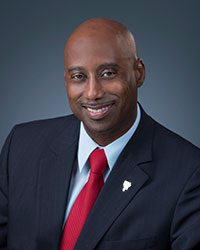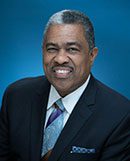Judge:
Pam Ferguson
Annex Building 3
121 South McDonough Street
Jonesboro, GA 30236
Hours of Operation:
Monday - Friday
8:00 a.m. - 4:30 p.m.
excluding Holidays


Weapons Carry License – Federal Eligibility Requirements
Please read before you come to the court. This could save you considerable time. If you have not read the Notice of Federal Prohibitions and the Federal Prohibitions Form (Click Here to Download Sample Form) when you come to the Court, you will be required to do so at that time. You will also be required to complete the Federal Prohibitions Form and sign it under oath.
Important Notice to All Weapons Carry License Applicants Concerning Certain Federal Laws
Notice of Federal Prohibitions
The laws passed by the Congress of the United States and the authorized Regulations there under are, under the Constitution of the United States, superior to the laws of the State of Georgia. The Gun Control Act of 1968, 18 U.S.C. §§921, et seq., including amendments thereto made under the Brady Handgun Violence Prevention Act of 1993, Public Law 103-159, and other related Acts, and the Regulations there under apply to and are binding on the several States. Because the Firearm License issued in the State of Georgia is a license which exempts the holder from the requirement that information be obtained through the National Instant Criminal Background Check System (NICS) at the time of any purchase of a handgun, any person who is prohibited under federal law from shipping, transporting, possessing or receiving firearms is prohibited from receiving a Georgia Firearm License. Therefore, it is possible that an applicant for a firearms license may be qualified under Georgia law to receive such a license but be prohibited under federal law from receiving the license.
As the issuing authority under Georgia law, the Probate Judge is required to recognize and follow the controlling federal law. The Probate Judge may not issue a license to any applicant who is prohibited from receiving such a license under federal law (primarily the “Brady Act”) even if the applicant is otherwise qualified to receive the license under applicable Georgia law.
At present, the Application for Firearm License approved and published by the Georgia Department of Public Safety, pursuant to the authority and direction contained in O.C.G.A. §16-11-129, may not call for disclosure by an applicant of all information which might indicate that the applicant is prohibited under federal law from receiving the license.
Following is a listing and a brief description of the prohibited categories under federal law, as this Court now knows them to exist and apply. If you are a person prohibited under federal law from receiving a firearms license, a license may not be issued to you. If information establishing a prohibition is obtained by the Court after the license is submitted, there will be no refund of the fees collected. If you believe that you might fall within a prohibited category, it is suggested that you not make application until you determine whether the prohibition applies to you or your situation.
Prohibited Persons
Convicted Felon
Any person convicted of an offense for which the maximum penalty, whether or not imposed, is imprisonment in excess of one year (a felony or a misdemeanor carrying a maximum penalty in excess of one year). What constitutes a conviction is determined by the laws of the jurisdiction in which the proceedings were held (state or federal). The prohibition does not apply if the conviction has been expunged or set aside or if the person has been pardoned or has had civil rights restored, unless the expungement, pardon or restoration expressly provides that the person may not ship, transport, possess or receive firearms.
Under Indictment
A person presently under a pending indictment for a crime punishable by imprisonment for a period in excess of one year may not receive a license during the pendency of the proceedings.
Fugitive
Any person who has fled from any State to avoid prosecution for a felony or a misdemeanor or any person who leaves the State to avoid giving testimony in any criminal proceeding or any person who leaves the State knowing that misdemeanor or felony charges are pending against him are prohibited from receiving a license.
Addict or User
A person who uses a controlled substance and has lost the power of self-control with reference to the use of the controlled substance or any person who is a current user of a controlled substance in a manner other than as prescribed by a licensed physician is prohibited from receiving a license. A “controlled substance” is a drug or other substance defined in Section 102 of the Controlled Substances Act, 21 U.S.C. § 802 and includes, but is not limited to, marijuana, depressants, stimulants, and narcotic drugs. It does not include distilled spirits, wine, malt beverages, or tobacco.
Mental Defective
A person who has been determined by a court, board, commission or other lawful authority to be, as a result of marked subnormal intelligence, or mental illness, incompetency, condition or disease, (1) a danger to himself or to others, or who (2) lacks the mental capacity to contract or manage his own affairs is prohibited from receiving a license. The term includes (1) a finding of insanity by a court in a criminal case, and (2) those persons found incompetent to stand trail or found not guilty by reason of lack of mental responsibility under the U.C.M.J.
Committed to a Mental Institution
A person who has been formally committed to a mental institution by a court, board, commission or other lawful authority is prohibited from receiving a license. The term includes a commitment to a mental institution involuntarily.
The term includes commitment for mental defectiveness or mental illness. It also includes commitments for other reasons, such as drug use. The term does not include a person in a mental institution for observation or a voluntary admission to a mental institution. The term “mental institution” includes mental health facilities, mental hospitals, sanitariums, psychiatric facilities and other facilities that provide diagnosis by licensed professionals of mental retardation or mental illness including a psychiatric ward in a general hospital.
Aliens
Aliens illegally or unlawfully in the United States and nonimmigrant aliens (with certain exceptions) are prohibited from receiving a license.
Dishonorably Discharged from Military
A person who has been separated from the U. S. Armed Forces resulting from a dishonorable discharge or dismissal adjudged by a general court-martial is prohibited from receiving a license. The term does not include separation from the U. S. Armed Forces from any other discharge, e.g., a bad conduct discharge.
Renounced Citizenship
A person who has renounced his U. S. citizenship is prohibited from receiving a license.
Court Orders
A person is prohibited from receiving a license who is the subject of a pending court order which restrains him from harassing, stalking, or threatening an intimate partner of such person or child of such intimate partner or person or from engaging in other conduct that would place an intimate partner or person in reasonable fear of bodily injury to the partner or child AND which includes a finding that such person represents a credible threat to the physical safety of such intimate partner or child OR by its terms explicitly prohibits the use, attempted use, or threatened use of physical force against such intimate partner or child that would reasonably be expected to cause bodily injury.
Misdemeanor Domestic Violence Conviction
A person who has been convicted in any court of a misdemeanor crime of domestic violence [a misdemeanor crime which has, as an element, the use or attempted use of physical force, or the threatened use of a deadly weapon, committed by a current or former spouse, parent, or guardian of the victim, or by a person with whom the victim shares a child in common, or by a person who is cohabiting with or has cohabited with the victim as a spouse, parent, or guardian, or by a person similarly situated to a spouse, parent or guardian] is prohibited from receiving a license.


 Click Clayton
Click Clayton






